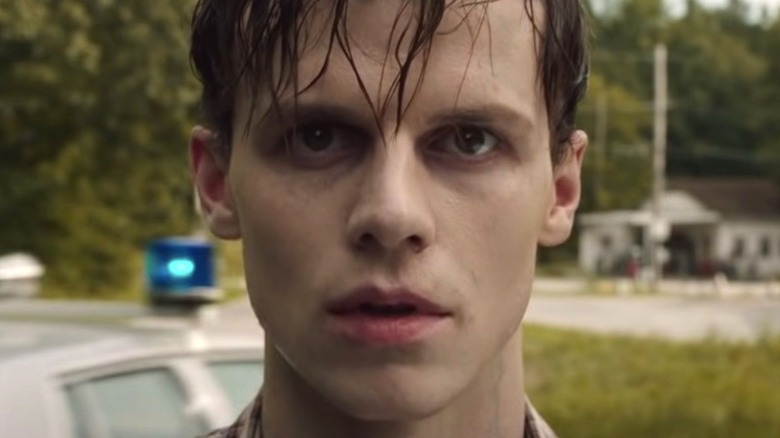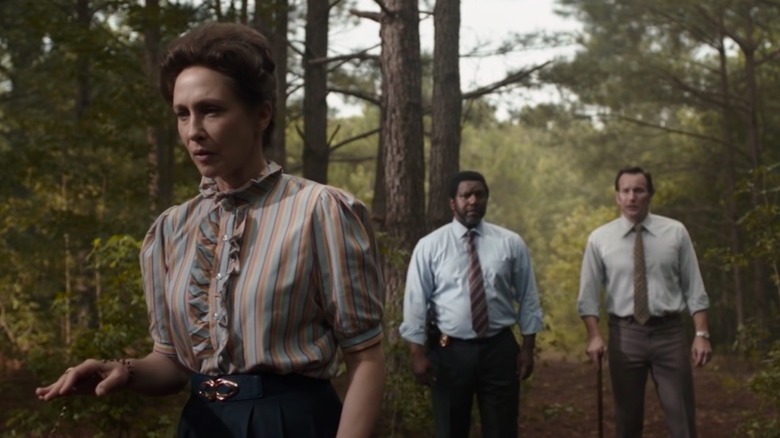What Makes The Conjuring 3 Different From The Others In The Franchise
In 2013, Patrick Wilson and Vera Farmiga first took on the roles of real-life couple paranormal investigators Ed and Lorraine Warren in James Wan's "The Conjuring." The film, set in 1971, follows the Warrens as they investigate the strange and disturbing events of a farmhouse in Rhode Island after the Perron family moves in. In "The Conjuring 2," which takes place in Enfield, England in 1977, the Warrens take on the case of Peggy Hodgson (Frances O'Connor) and her four kids, one of whom begins showing signs of demonic possession, and the poltergeist activity that's happening in their home.
The next film, the third in the series and the eighth in the overarching "Conjuring" universe, will come out on June 4, 2021. Set in Connecticut in 1981, "The Conjuring: The Devil Made Me Do It" will chronicle the events behind the trial of Arne Cheyenne Johnson, which marked the first time in U.S. history that a suspect claimed demonic possession as a defense (via IndieWire). While the first two "Conjuring" films were directed by James Wan, the upcoming installment was helmed by Michael Chaves, who previously directed one of the other films in the "Conjuring" universe, "The Curse of La Llorona."
Chaves recently spoke with Collider about working on "The Devil Made Me Do It" and what fans can expect, including how this one will stand out from the others in the series.
The Conjuring: The Devil Made Me Do It has a darker outcome
During his conversation with Collider, Chaves pointed out that, in the first two films, everything "works out" in the end, in terms of the present characters surviving. With "The Devil Made Me Do It," death is more central to the plot. Chaves said, "I think this is the first one where it's a real murder. There's a real victim."
With this film, Chaves wanted to explore what happens when it doesn't all work out in the end and how those involved "find that path forward." He continued, "When it's a haunted house experience and no one was hurt and people talk about it, that idea of, do I believe or do I not believe, is a playful thought experiment. It's not really something that you have to come up with a decision about. But when someone has been murdered and a life has been taken, and then the person claims demonic possession, all of a sudden, do you believe in demons? We're talking about a man's life who's lost, and another man's life that's on the line. All of a sudden, the stakes get raised, and the question of faith and what is right and what you believe, really does come to the forefront."
With such a nuanced plot steeped in recent tragedy and death, it makes sense that "The Devil Made Me Do It" has been called the "darkest" of the "Conjuring" films yet. Chaves concluded by stating that his goal making the film has been "telling the story right and delivering on something that lives up to 'The Conjuring' thrill ride experience, but then also is aware of the real tragedy in it and the reality of it."

